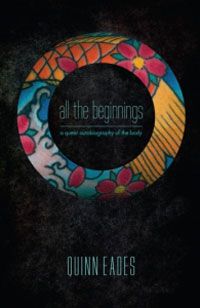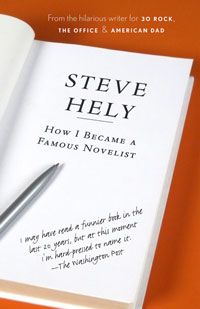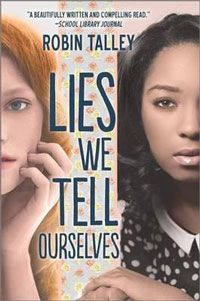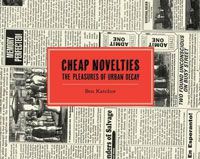Each week we bring you a sample of the books we’re reading, the films we’re watching, the television shows we’re hooked on or the music we’re loving.
Ed Moreno is reading all the beginnings by Quinn Eades
Fans of genre outlaws, revel in Quinn Eades’ heartbreaking, powerful, mindblowingly-visceral all the beginnings. Immerse yourself in a text which bends, breaks and redefines all the rules, and then hands you a perfectly-crafted poem – a Dragonfruited sphere / shining tissue / black spotted ball / bloodless moon – to rip you right open, head to toe. This book is Australia’s homegrown The Argonauts so if you’ve passed your Maggie Nelson on to a friend, get this hybrid memoir magic into your hands ASAP. All the recommendations for all the beginnings.
Jan Lockwood is rereading How I Became A Famous Novelist by Steve Hely
Prompted by the arrival in the office of a bumper package of pre-Christmas USA treats (Twinkies, Graham crackers, Hershey’s chocolate, Puffed Marshmallows, etc) I am revisiting How I Became A Famous Novelist by Steve Hely. I first read this novel about five years ago and it was hilarious.
Hely is, among other things, a writer for brilliant TV shows such as 30 Rock, American Dad, The Office and Veep, and his skills as a novelist are razor-sharp too. Yes, it is a book about writing in that the main character cynically sets about writing a bestseller using a formula, but the references throughout the story remain relevant to non-writers and the comedy is immense.
Leanne Hall is reading Lies We Tell Ourselves by Robin Talley
I’m half-way through the devastating (so far) Lies We Tell Ourselves by Robin Talley – the story of two high school girls on different sides of the racial segregation debate in 1950s Virginia. Sarah Dunbar has the task of being one of the first African-American students to attend all-white Jefferson High, a situation that exposes her to unbearable physical and verbal abuse, at the same time as it forges equality. When Sarah is paired for an assignment with Linda Hairston – the daughter of an outspoken anti-integration journalist – heated debates ensue. Talley does a great job of getting across the political importance of this moment, while never backing away from how difficult it would have been for African-American teens in this position.
Robin Talley utilises alternating first person perspectives, which allows the reader to empathise strongly with Sarah, resist the temptation to demonise Linda, and watch their mutual attraction grow. I’m just at the point in the story where Sarah and Linda’s opinions of each other are on the turn, and I’m hoping they’ll soon fall passionately into each other’s arms. (This was the 1950’s though, so I’m trying to keep my expectations in check.)
Amy Vuleta is reading Cheap Novelties by Ben Katchor
Cheap Novelties is the second collection of Ben Katchor’s ‘Julius Knipl, Real Estate Photographer’ series. The first collection has an introduction by Michael Chabon in which Chabon wrote movingly about the quiet, pervasive nostalgia that’s so pervasive in the comic.
Katchor’s drawing style is blockish and somewhat crude, but also nuanced in a way that perfect expresses the characters and the landscape they inhabit. The protagonist, Julius Knipl, moves about the same city that he’s always lived in, and will always recognise despite it changing, growing, moving, adapting. The collection is full of a mix of humour and despair about the passing of time – from the opening panel: Mr Knipl must quell his memory of what previously stood on this site.






